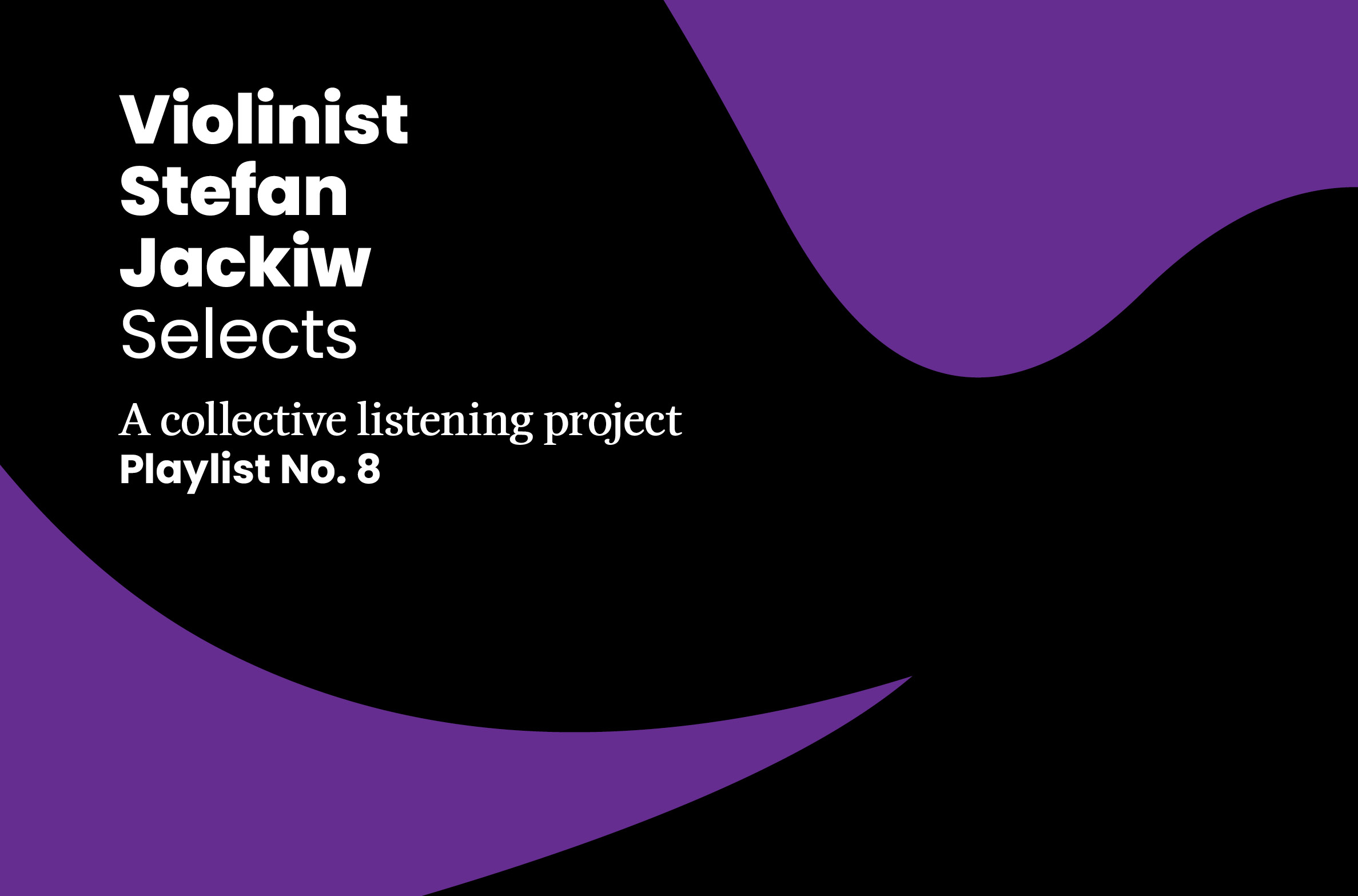Welcome to our 2024-2025 season!
Collective Listening Project
Violinist Stefan Jackiw Selects
Playlist No. 8
About the Playlist
April 23, 2020

A frequent artist on our stage, violinist Stefan Jackiw most recently wowed us back in October when he joined pianist Jeremy Denk for the complete violin sonatas of Charles Ives. He brings his characteristic thoughtfulness and sincerity to this playlist, sharing why the three works listed below bring him comfort during this time. We hope they bring you some comfort, too!
1. Read & Listen: “The Kreutzer Sonata”
Leoš Janáček: String Quartet No. 1, “Kreutzer Sonata”
“I’ve been spending too much time on the internet, oscillating between reading heartbreaking and terrifying news reports from across the world and bingeing my way through one puppy video after the next. It’s time to put down my iPhone and unplug from the internet. What better way to do this than to curl up with a good book? Even better if it’s paired with a musical masterpiece. Might I suggest you crack open Leo Tolstoy’s “The Kreutzer Sonata,” and follow it up with Leoš Janacek’s first string quartet of the same name? True, Tolstoy’s searing novella is driven by violence, jealousy, and murderous rage—perhaps not the most soothing literary balm in these troubled times—but it holds the reader in a vice-like grip from cover to cover. Janacek wrote his first string quartet after reading Tolstoy’s work. Like the novella, the string quartet is a tightly coiled, blistering ride.
Consider supporting our friends at Labyrinth Books and purchasing a copy of Tolstoy’s short story for curbside pickup or delivery. More info>
2. Celebrate Beethoven: The Triple Concerto
Ludwig van Beethoven: Concerto for Violin, Cello, and Piano in C Major, Op. 56
During the summer, I traveled to London to record Beethoven’s Triple Concerto for Violin, Cello, Piano, and Orchestra with some of my favorite musicians and dear friends: cellist Alisa Weilerstein, pianist Inon Barnatan, and the Academy of St. Martin in the Fields, conducted by Alan Gilbert. This was one of the most fun and inspiring musical experiences of my life. The Triple Concerto is one of Beethoven’s sunniest, most optimistic works. To me, it feels like a joyful celebration of friendship, and the recording sessions with my fellow musicians felt like just that. 2020 marks the 250th anniversary of Beethoven’s birth, and ensembles and presenters across the globe have devised programs to honor this musical giant. Sadly, COVID-19 has cut the festivities short, but let’s still celebrate dear Ludwig at home with our loved ones.
3. Find Comfort in Darkness: Messiaen Quartet for the End of Time
Olivier Messiaen: Quartet for the End of Time
Last season, I performed Messiaen’s Quartet for the End of Time at Princeton University Concerts. My collaborators were pianist Orion Weiss, cellist Jay Campbell, and clarinetist Yoonah Kim. These three are particularly dear to me. I’ve been friends with Orion since I was 16. Jay and I are in a piano trio (the Junction Trio, with pianist Conrad Tao), and he is one of my most frequent musical partners. And Yoonah and I have plans to get married soon, if city hall is open for business.
While, as its title would suggest, the Messiaen is a musical chronicling of the apocalypse, there is more to it than merely doom and gloom. At its core, the Quartet is a work of hope and profound tenderness. At the end of the nearly one-hour work, after all the dust has settled and “time is no longer,” Messiaen closes with a final praise to the eternity of Jesus for violin and piano. He marks the violin part “extatique, paradisiaque, avec amour—ecstatic, heavenly, with love.” It is a movement of almost ineffable vulnerability, love, and above all, hope. It is hard to find a silver lining in a cataclysmic event such as the current pandemic, but time and again, we see that in moments of suffering, tragedy, and loss, people come together to help each other and offer each other comfort and love. It is precisely during these trying times that we are reminded of our shared humanity, and that despite our differences—cultural, political, or otherwise—we’re all in this together.”



